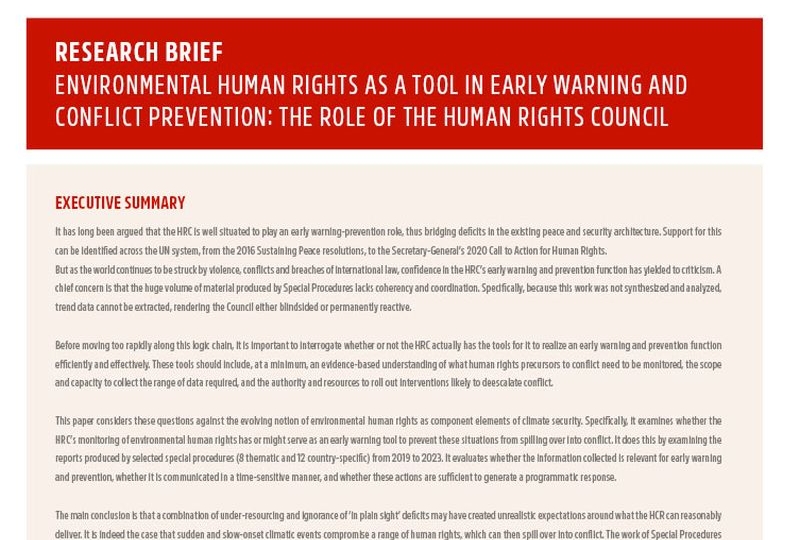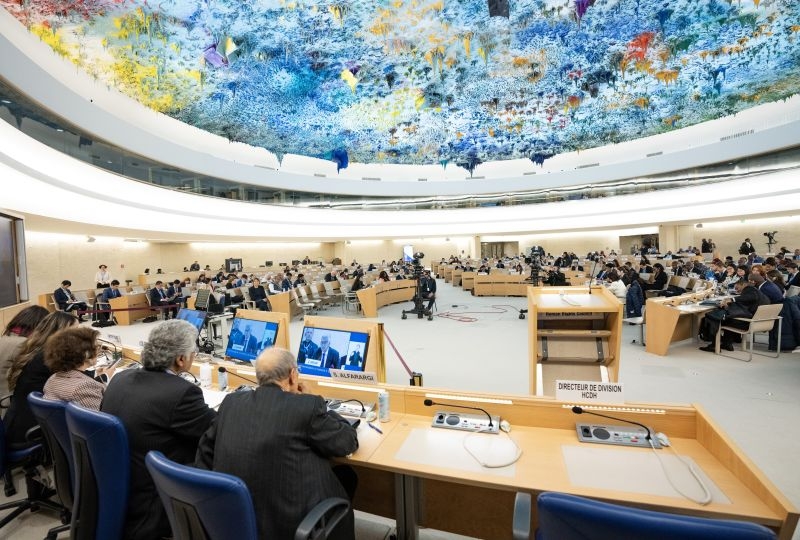The paper discusses the role that the HRC’s Special Procedures – often referred to as the HRC’s ‘eyes and ears’ – can play as early warning tools and to fill gaps in existing apparatus.
‘Special Procedures have the capacity to establish connections between environmental human rights, climate change and violent conflicts, and to detect the early signs of climate-induced and resources-based conflicts’ explains our Head of Research and Policy Studies, Dr Erica Harper.
However, the paper sets out three stumbling blocks that would have to be overcome for the HRC to effectively and efficiently play the role of an early warning and prevention actor in climate security.
A first challenge is that the HRC’s Special Procedures do not collect information on environmental human rights violations at a sufficiently granular level to be of consistent early warning value. A second challenge is the absence of mechanisms that would facilitate Special Procedures drawing the attention of the Council to situations that might spill over into conflict in a time-sensitive manner. Finally, effective prevention requires that early warning be linked to early action. As an inter-governmental body, the HRC’s willingness to engage will always be subject to political forces, and even then, its capacity to mandate action is largely limited to non-programmatic measures.









